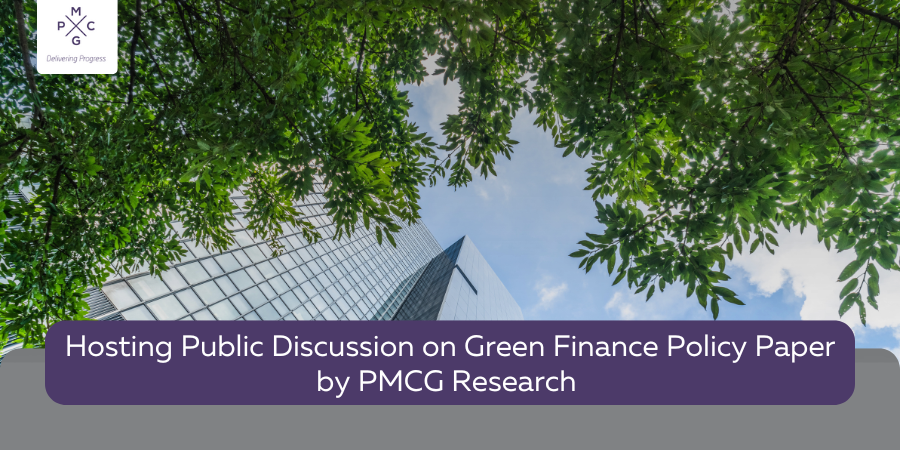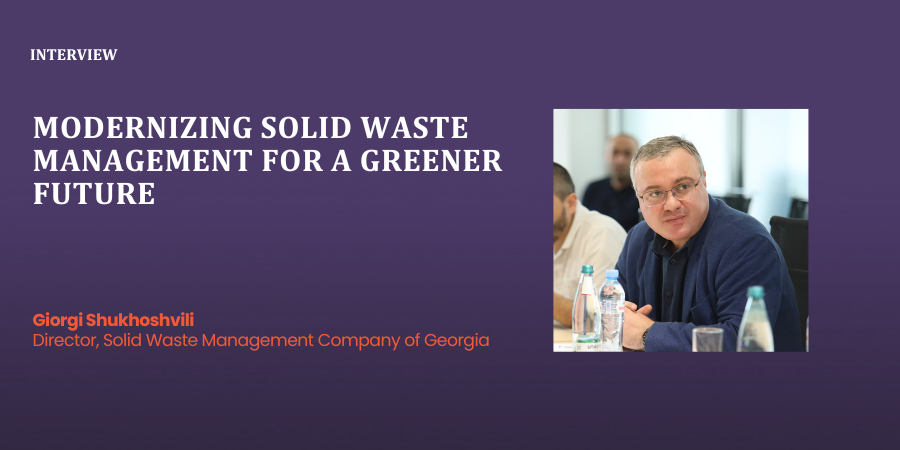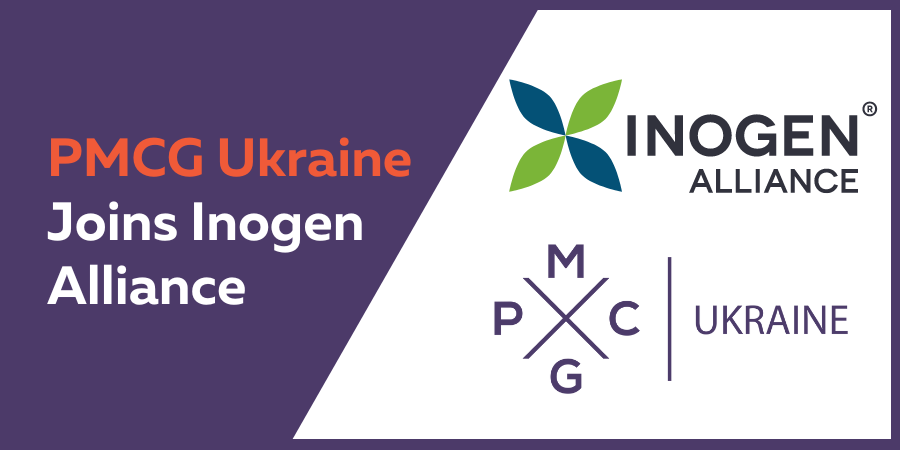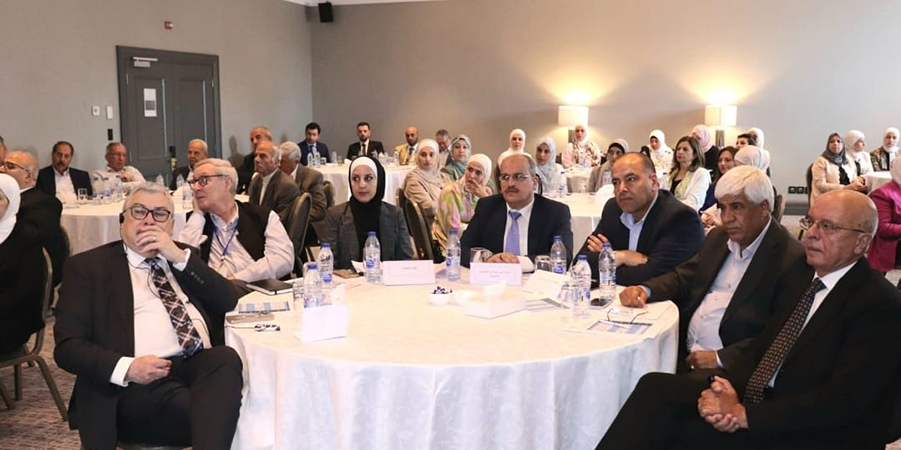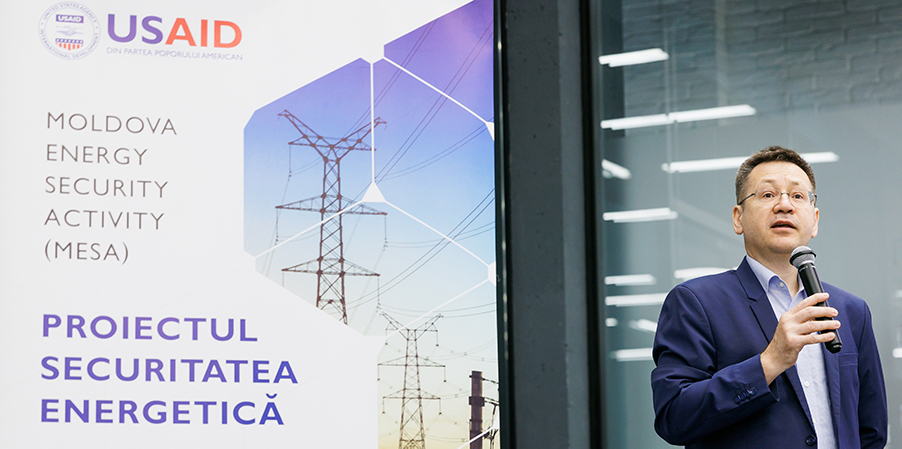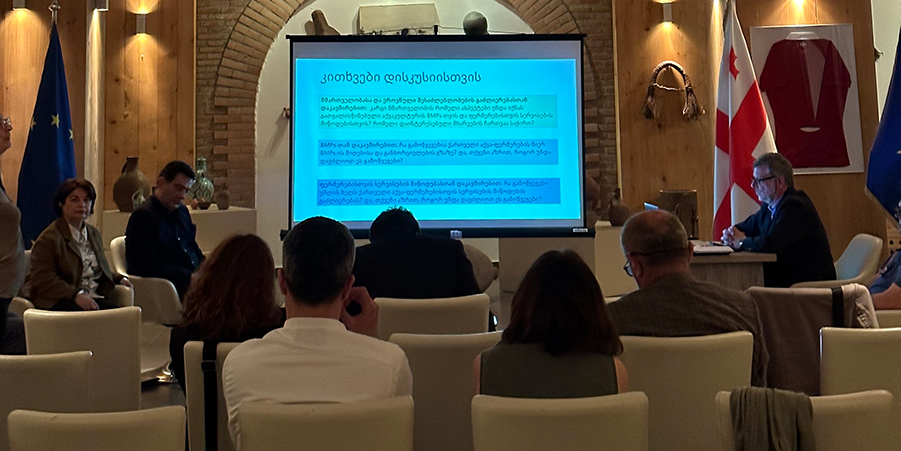“Be Part of the Solution” – International Expert Demetres Economides on Solid Waste Management
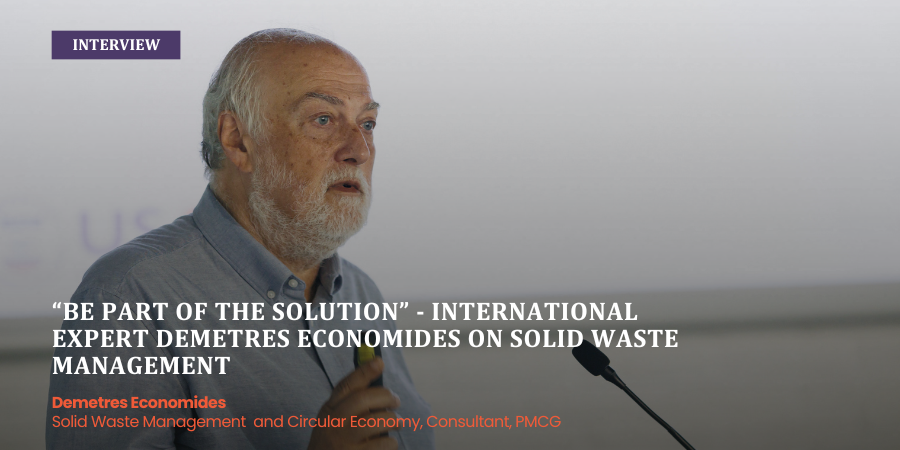
We recently sat down with one of PMCG’s consultants, Demetres Economides, an international expert in solid waste management and circular economy, who shared his insights on the sector in general and PMCG’s work therein specifically.
With over 40 years of professional experience, Mr. Economides has excelled as a team leader, project manager, and a senior scientific research collaborator. Furthermore, he has been extensively involved in environmental policymaking and legislative projects in numerous countries in Eastern and Central Europe, the Caucasus, the Middle East, Africa, and Central Asia.
In many cases, he focuses on ensuring compliance with EU waste management objectives and standards. Boasting rich expertise in preparing technical documentation as well as auditing and costing of strategic infrastructure, he also advises on environmental issues for diverse projects internationally.
With that in mind, we talked with Mr. Economides about solid waste management projects in which PMCG has been involved in Georgia and Moldova, as well as broader issues in his specialist sector.
Q: How would you perceive the role of waste management in fostering sustainable development and addressing environmental challenges?
Waste management plays a crucial part in sustainable development, as waste is a major factor in pollution. Therefore, it is essential to have an organized and integrated waste management system in place that fosters sustainability, rather than simply collecting and disposing of waste. Indeed, the targets set for the circular economy place great importance on waste management, and all activities here should align with these aims.
Q: What are some of the challenges in implementing effective waste management systems?
The most important waste management targets revolve around the 3Rs: reduce, reuse, and recycle. Of course, the primary goal is to reduce consumption and thus the generation of waste streams. Everyone must understand this as a necessity. It is similarly important to reuse materials, such as packaging or bottles, for different purposes instead of just discarding them. Meanwhile, to accomplish effective recycling, various actions need to be taken, including implementing recycling practices in households and defining proper disposal sites.
Q: What innovative waste management and recycling approaches can be adopted to minimize landfill waste?
First, we need to specify and separate recyclables even at home, instead of producing mixed waste. Approaches and systems have been developed in many countries already, but there is always room for more innovation and improvement in collection, separation, and finally disposal. New technologies have emerged that can process recycled materials. Indeed, now you can take old plastic and produce oil and gas from it. Innovations of this kind are at varying stages; some are already in use, but many are still in development.
A pertinent example I want to highlight here is the project in Moldova in which PMCG is closely involved. Here, we have investigated the potential for a waste management project in the country’s two major regions, Chișinău and Bălți. The project started in 2023 and will be completed soon, this year. The final report includes quality measurements of waste and projections for future waste trends. It also provides evaluations of the best technologies to use for each area.
Read More: Waste Characterization Study and Evaluation of Moldova’s Prospects for Waste-to-Energy Production
In June, we presented the outcomes at a workshop attended by all main stakeholders including the relevant ministry and municipalities. The proposed solutions will undergo further evaluation, study, and design before their implementation. Overall, this project serves as a model for many other regions and countries to follow.
Q: What strategies can be implemented to increase public awareness and participation in waste reduction and recycling programs?
Waste is produced by people, and everyone should understand the importance of individual participation in waste management. It’s not just about raising awareness; we must start discussing waste issues from kindergarten, right through to school. After just two days in kindergarten, my five-year-old son came home and asked where the recycling bin for paper was. This is something we should all consider and pass on to future generations.
It’s crucial that people understand that the materials they use and consume can be reused and recycled, and it should be a continuous effort.
When determining the location of a landfill, public awareness and acceptance are often emphasized. However, it’s essential to involve people from the very beginning, so they know that the selection of final disposal sites has met environmental, social, technical, and economic criteria.
Q: What role do you believe international cooperation plays in advancing sustainable waste management practices?
The ways some countries have successfully overcome challenges should serve as examples for implementation elsewhere. Effective programs, feasibility studies, designs, and public awareness campaigns that have had the desired effect should be replicated. It is also vital to involve all stakeholders affected throughout. Including them in the process ensures that their perspectives and concerns are addressed, leading to more effective and accepted solutions.
People should be involved as reducers and recyclers and all final solutions should be integrated in a sustainable way. Therefore, learning from international experience can help to ensure the design and implementation of an efficient waste management system.
Q: How would you view waste management in Georgia, and which projects are particularly significant?
Georgia must accelerate its waste management efforts. Encouragingly, discussions are ongoing on feasibility studies for waste treatment, separation plans, recycling, and waste-to-energy production, with initiatives being considered to meet EU targets.
We have been working with PMCG and other international partners on the new landfill project in Kvemo Kartli, which is currently under construction. In the latter, PMCG, as part of a consortium led by HPC AG / Paseco, is involved in the ongoing construction of one of the first EU-compliant landfills in the South Caucasus region, funded by EBRD.
Once completed in the Kvemo Kartli region, this will set a high standard for Georgia and its neighboring countries. Furthermore, it will provide around 300,000 residents with enhanced municipal waste services and a cleaner environment in which to live.
In addition, we have been involved in installing biogas extraction systems at the landfill operating in Rustavi.
In central Georgia, we are participating in various private projects aimed at improving recycling and waste collection. These projects also focus on transferring and recycling of materials like plastic and paper. Altogether, these efforts contribute to the creation of compostable green waste.
Q: How can technological advances be leveraged to improve waste management systems and reduce the environmental impact of waste?
The most important thing is that the environments polluted by landfills can be regenerated and reused. With new technological improvements we can produce energy from so-called “dumpsites” which contain useful materials.
Today, people play golf on what were once dumpsites in New York. So, there are many possible solutions and improvements, and social contribution and participation is vital.
We are all responsible and should encourage our friends and communities to take action. Waste management is not just a technical matter; it’s an environmental and social issue that requires our attention. Be part of the solution. This is my mantra, and I stand by it.
